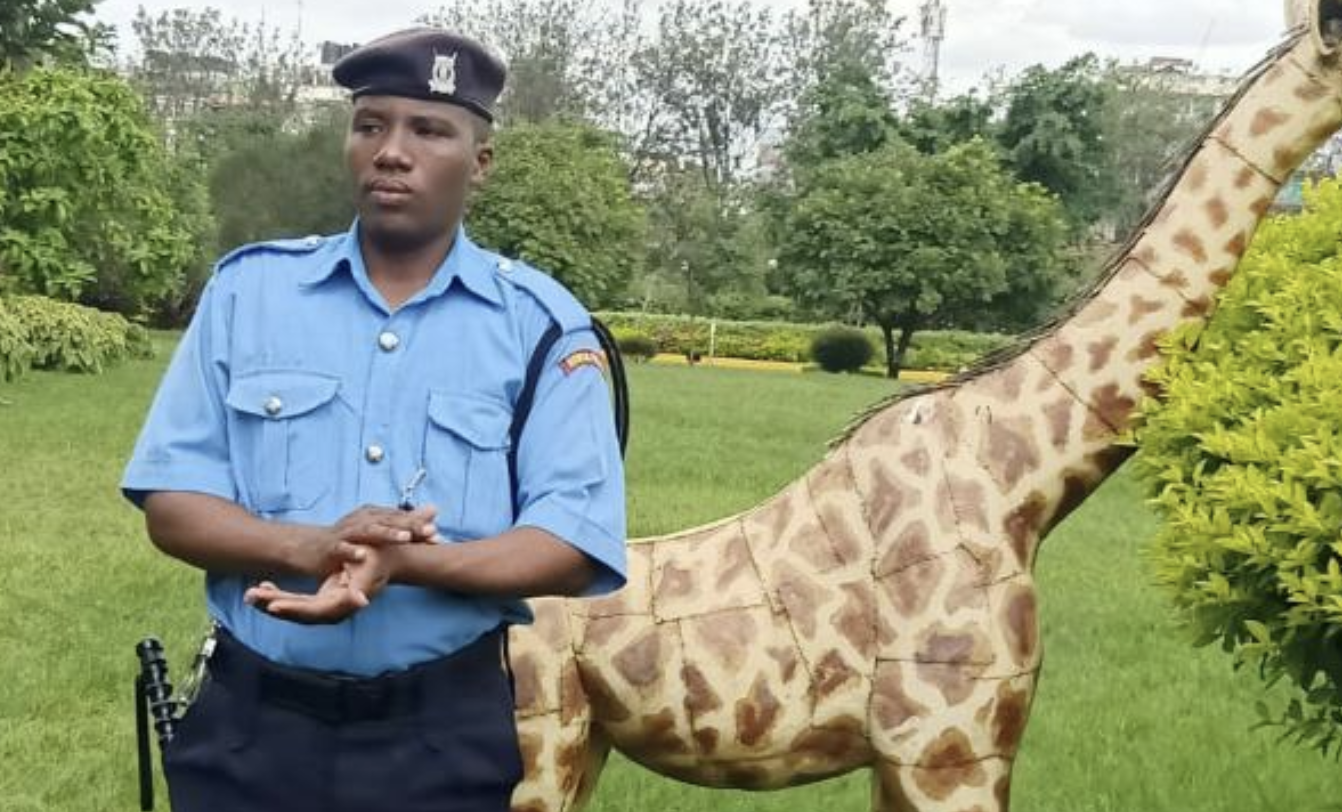A police constable attached to Gigiri Police Station who went missing on June 27, has been found dead in Thika.
Even as detectives claimed they were investigating the whereabouts of their colleague, Constable Stephen Kairu, it took the family 19 days of relentless and agonizing search before they finally found the body at Thika Level V Hospital on Monday evening.
Ironically, the body had been taken there by three traffic officers from Ruiru Police Station who had positively identified him.
Corporal Muktar, Constable Muchai and police driver Constable Aden collected the body and booked the report, Occurrence Book (OB) number 95/27/6/2019 at 8.55pm before taking the body to Thika hospital.
Records at the hospital clearly indicated the names of the deceased officer.
Police said the body was found in the middle of the road near Kahawa West’s Gulf petrol station where it is suspected to have been dumped or hit by a Toyota Fielder whose driver did not stop.
Investigations have also been launched to establish the identity of some men who searched, and picked some items, including documents from the consable’s pockets.
According to the Directorate of Criminal Investigations (DCI), the officer was last seen in Ruaka when his mobile phone was last active.
The police started investigating the disappearance three days later even as the family complained that they were not getting any help from the police.
A day to his disappearance, the deceased officer called his sister Miriam Wamaitha and hinted that he wanted to confide in her.
He, however, did not deliver the message, and instead said he would go home and relay the crucial message face to face.
The family said by the time of his disappearance, the officer was residing at Gigiri Police quarters.
“DCI officers from Gigiri said he went missing on a Sunday, June 30, but they came here three days later. They said they couldn’t find him. However, police showed his phone went off on June 27, 2019 in Ruaka,” Wamaitha said.
The family complained that even as they went to the station to follow up on the whereabouts of their kin, detectives did not seem concerned.
“It has been very frustrating. It is like we are bothering them,” she decried.
Some of the senior officers even insinuated that the deceased officer could have deserted duty.
As the investigations into the killing commences, detectives from Gigiri and Cyber-crime unit are now piecing together the last moments of the officer, including the people he communicated with and the places he visited.
The incident has raised concerns on how police investigate cases of unidentified bodies and missing persons.
On January 29, for example, Kasarani traffic police officers took the body of Nation Media Group employee Mildred Odira to City Mortuary.
At the same time, detectives from the Kasarani DCI, domiciled in the same building, were investigating the whereabouts of Odira.
Six days later, the family found the body at the morgue.
This is despite the fact that there are explicit procedures to be followed when such bodies are found.
When police recover such bodies, they should be thorough searched for any documents to identify them.
If nothing is found, the fingerprints should be taken the soonest possible to help in revealing their identity.
A detailed report has to be made in the OB, including the sex, approximate age and height, dressing, and the general physical appearance.
A brief to the police headquarters will be written and a signal of circulation of unknown body sent to other stations across the country.
The fingerprints taken are then forwarded to the Registrar of Persons at the NSSF Building and the results are usually released immediately.
At the scene, police are expected to draft a sketch plan and study the scene with a view to establishing whether the injuries observed are consistent with accident injuries or the victim was just murdered elsewhere and the body dumped.
In most cases, however, this has not been the case.










